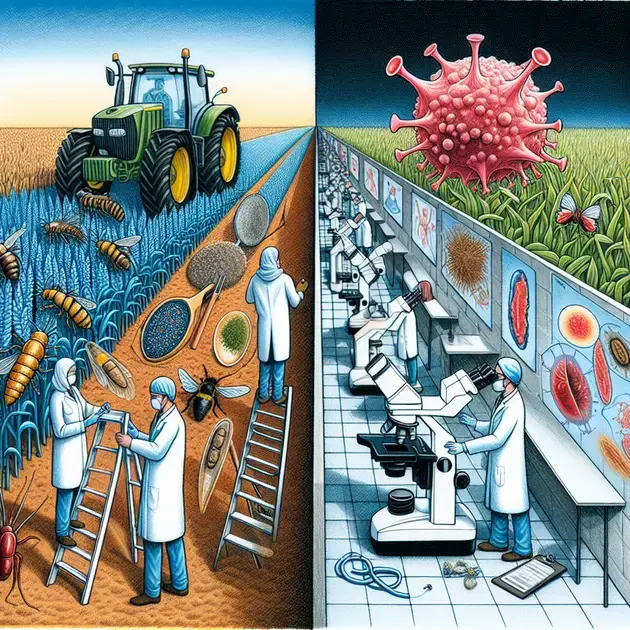Researchers Explore How Established Agricultural Pest Management Strategies Could Be Adapted to Address Cancer Therapy
Agricultural pest management has long been a crucial part of ensuring food security and preventing crop loss. Farmers have relied on various strategies to control pests and minimize their impact on yields, including chemical pesticides, biological control agents, and integrated pest management techniques.
Interestingly, scientists are now looking at these established agricultural pest management strategies and exploring how they could be adapted and applied to the field of cancer therapy. The aim is to develop innovative methods to control drug resistance and ultimately improve patient survival rates.
Drug resistance is a major challenge in cancer treatment. Over time, cancer cells can develop mechanisms to evade the effects of chemotherapy, rendering the treatment ineffective. This leads to poor patient outcomes and limited treatment options. By drawing inspiration from agricultural pest management, researchers hope to find novel solutions to combat drug resistance in cancer cells.
One approach that researchers are investigating is the concept of “IPM for cancer.” Integrated Pest Management (IPM) is a holistic approach that combines various methods to control pests effectively while minimizing risks to human health and the environment. Similarly, IPM for cancer would involve using a combination of therapies, such as chemotherapy, immunotherapy, targeted therapy, and radiation therapy, to target cancer cells from multiple angles.
The idea behind this approach is to reduce the likelihood of cancer cells developing resistance to a single therapy. By utilizing a combination of different treatments, the chances of cancer cells developing mechanisms to evade all of them simultaneously would be significantly reduced. This could potentially lead to improved patient outcomes and increased overall survival rates.
Another strategy inspired by agricultural pest management is the use of biological control agents to target cancer cells. In the agricultural context, biological control agents are organisms that naturally suppress the populations of pests. Similarly, in cancer therapy, scientists are exploring the use of living organisms, such as viruses, bacteria, or immune cells, to specifically target and destroy cancer cells.
One promising example of this approach is oncolytic virotherapy, where viruses are modified to selectively infect and destroy cancer cells. These viruses can be engineered to specifically replicate within cancer cells, leading to their destruction while sparing healthy cells. By mimicking the principles of biological control in agriculture, scientists hope to develop more efficient and targeted cancer therapies.
By adapting established agricultural pest management strategies to address drug resistance and improve patient survival, researchers are opening up new possibilities for cancer therapy. The concept of “IPM for cancer” and the use of biological control agents offer innovative approaches to tackle the challenges posed by drug resistance in cancer cells.
While further research is still needed to fully understand the potential of these approaches and their efficacy in clinical settings, the exploration of such strategies showcases the importance of interdisciplinary thinking and the value of drawing inspiration from other fields. Ultimately, by combining the knowledge and expertise from different disciplines, we can enhance our approaches to cancer therapy and contribute to improved outcomes for patients.
